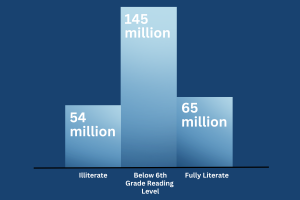I broke up a fight
September 22, 2017
I broke up a fistfight.
That is a sentence I thought I would never have to write, but because of the appalling scene I found myself a witness to, I had to make those words a reality. At about 3:15 p.m. on Sept. 11, an hour later than I usually leave school, I was on my way to my car to finish homework at a cafe like any other Monday, yet something was different.
By some miracle, I ended up still on campus, and thank goodness I was because I can’t imagine what would have happened if I wasn’t. What I saw was a group of about 20 students gathered around watching as their fellow classmates engaged in a heated exchange turned physical. Nobody in the crowd made any moves to stop the fight — some were even filming it. To make matters worse, there were about five adults sitting in their cars, watching the entire scene.
I don’t mean to call myself a hero by any means. In that moment I made a choice to step in. By doing so, I did what I have been told since preschool: to stand up against what you think is wrong.
I believe that all humans are virtuous. Some may call me idealistic, but I have faith that humans are inherently good, and what I saw disappointed me. I am not talking about the students who were fighting, but rather, those who were watching. I hope that everyone believes that violence is not ideal. That day, I saw that nobody stood up for any of the students involved. I saw no one standing up for what they believe is right.
Understandably, those who were watching would know that both sides are to blame for choosing violence, but I am not here to talk about who said what or who did what first. I am not here to talk about zero tolerance, because Mr. Wong was kind enough to address zero tolerance expectations a few weeks ago. I am here to talk about what I should have witnessed.
Rather than watching students jeer and insult one another while a crowd stood around to speculate, I wish I had seen the crowd telling both parties to lay off one another. I should have seen a parent walk out of their car and tell both parties to “man up” and work things out in a mature way. I wish I had seen students putting down their recording devices, trying to mediate.
Imagine having vile words and physical things thrown at you as people you consider peers simply watch silently or laugh. In that situation I would feel helpless.. I would feel trapped. I would feel alone. Yet the sad irony is that you’re not alone. You are in ample company. Quite literally, all eyes are on you, yet for all the wrong reasons.
That is how we end up with people who are hurt, and people who choose to hurt others because they feel hurt. This is when those who try not to be involved must realize that they are responsible to put a stop to a fight.
Understandably, physical confrontations are terrifying. It’s scary to put yourself in a situation where you can risk physical injury, especially if you have the choice to be involved or not. I felt that fear as I stood between the students, raring to clash with one another. What I don’t understand is how you would allow a situation to escalate to the point where others may have to risk physical injury if they choose to intervene.
One may say you have to be be incredibly brave to jump into a situation like that, but that is not how I define bravery. Bravery is an innate human quality. We all have bravery, we just need to apply it. There are easier ways to apply bravery than intervening in a fight, for example, we can simply do something we do everyday: speak.
We are all given the ability to use these magical things called words that have meaning and power behind them. Words are used to build societies, share knowledge and are essentially the base of all human legacies. We all understand the power of words when we watch the news and see world leaders move nations. Yet why don’t we always use them? After sitting down and thinking it all over again, I could only come up with two answers to that question: either we don’t know how to speak, or we don’t want to.
Imagine how different the situation would have been if someone had just said one word: “stop.” It’s one word out of millions, yet it speaks volumes because it would have saved everyone a lot of grief. It would have saved everyone a lot of physical and emotional pain. The power of words can be abused as it was that day.
This is why I am using my words now. I can only hope that my words may inspire a few others to do as I chose to do and step up. Harmless gossip is inevitable, but it will only remain harmless if we control it. You may not need to break up a fight, but even doing something as small as refraining from gossipping can make a difference. We all have words, we all have beliefs, and thus, power. Shouldn’t we use these qualities to stand up for what we believe is right?




























































Joan Lin • May 4, 2018 at 3:27 pm
When you are alone, but in your heart, you are never lonely.
.
.
.
.
.
I am with you forever, no matter where you are.
Love you, my brave little girl!